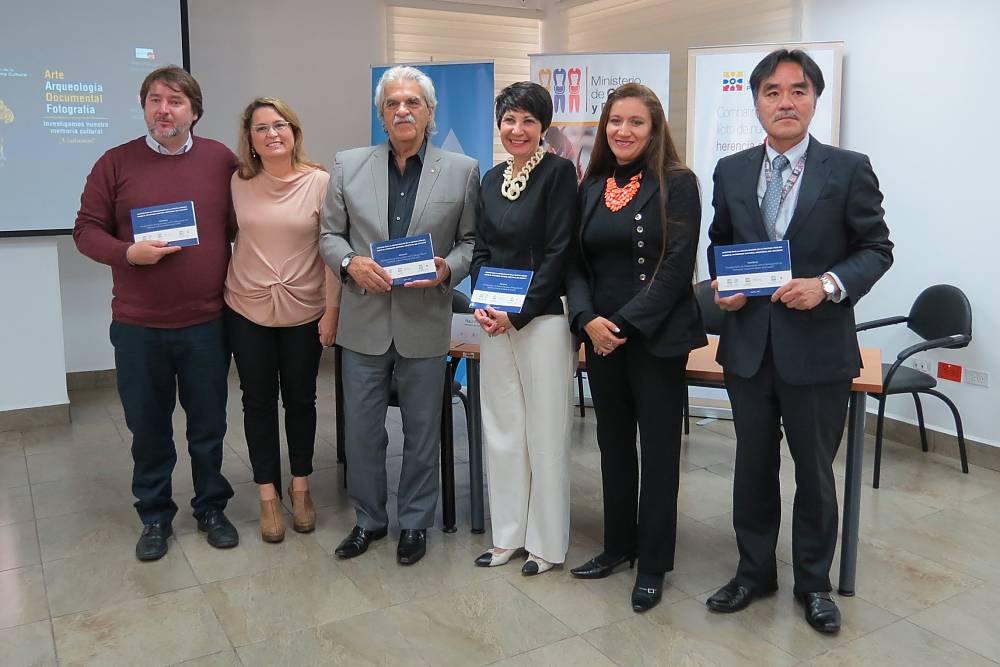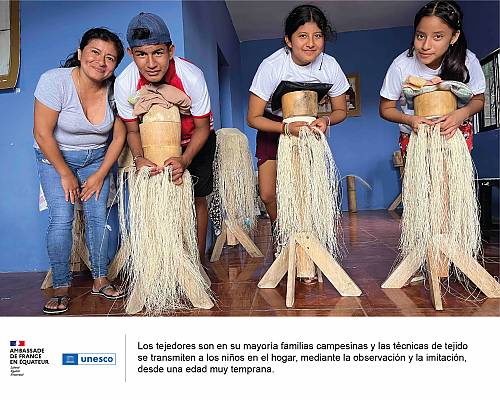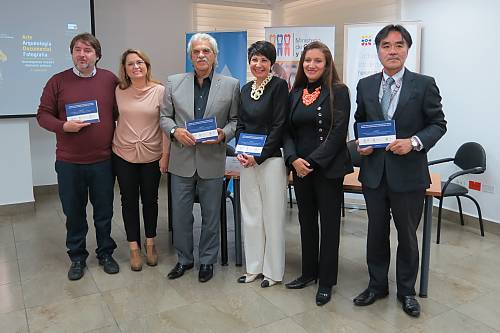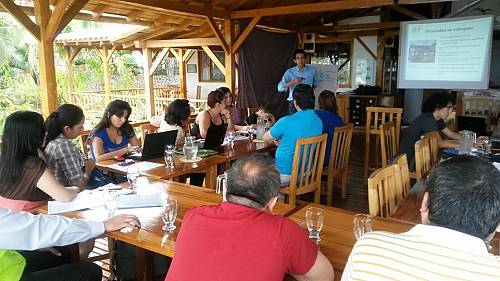On 13 September last, in Quito, Ecuador, UNESCO and the Minister of Culture and Heritage of Ecuador, Mr Raul Pérez Torres, launched the publication “Contributions for the Consolidation of the Public Policy on the Intangible Cultural Heritage of Ecuador”. This policy guide was developed to help local governments in their efforts for the safeguarding of intangible cultural heritage. It has been elaborated following a community-based approach, with the participation of 31 local governments, six universities, and representatives of six native communities. The Consul of Japan in Ecuador, Mr Mutsonori Nonomura, participated in the launching event as this work has been made possible thanks to the generous support of the Japanese Trust Fund for the safeguarding of the intangible cultural heritage.
This event marked the closing of the multi-year project “Strengthening capacities for safeguarding intangible cultural heritage in Ecuador”, which has been implemented by the UNESCO Office in Quito since 2015. Over the past two years, 180 people from 31 municipal governments benefited from seven capacity-building workshops, which strengthened their knowledge and skills on the principles of the 2003 Convention, the elaboration of safeguarding measures and on the formulation of public policies relevant to intangible cultural heritage. A major outcome of the project was the drafting of the Organic Law of Culture, which was approved by the National Assembly in December 2016.
Ecuador ratified the 2003 Convention for the Safeguarding of the Intangible Cultural Heritage on January 18, 2008.
Project:
-
Strengthening capacities for safeguarding intangible cultural heritage in Ecuador (1 February 2015 – 1 June 2017)




